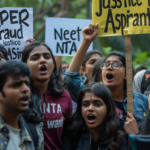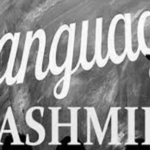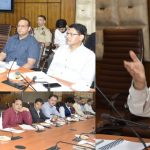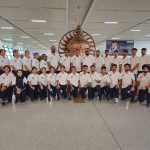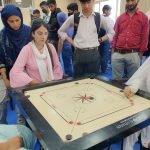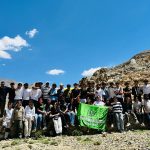The tale of the Kashmiri Pandits is one of tragedy, displacement, and the relentless struggle for identity preservation. Forced to flee their homeland due to militancy in the late eighties and early nineties, this community has faced an array of challenges that have profoundly impacted their unity, culture, language, and overall identity. Disunity among uprooted communities is a common phenomenon, and the Kashmiri Pandits are no exception. Various factors contribute to their inability to voice their problems unitedly, and this narrative seeks to explore these elements in depth.
The Kashmiri Pandits, a minority Hindu community in the predominantly Muslim Kashmir Valley, have a rich cultural heritage that dates back millennia. They have been known for their contributions to literature, philosophy, and the arts. However, the rise of militancy in the 1980s and 1990s led to severe persecution and mass exodus of Pandits from their ancestral lands. This migration not only displaced them physically but also disrupted their social fabric, leading to a fragmentation that persists to this day.
The migration scattered the Kashmiri Pandits across India and beyond. The immediate need to find safety and sustenance led to their dispersion into various regions, resulting in small, isolated pockets of Pandit communities. This geographical separation has made it difficult to maintain a cohesive and united front. Unlike in a concentrated setting where collective action is easier, dispersed communities struggle to organize and advocate effectively for their rights and needs.
With migration came the erosion of cultural practices. The unique traditions, festivals, and daily rituals of the Kashmiri Pandits became harder to sustain in unfamiliar environments. Over time, the younger generations, growing up away from the cultural heartland, have become increasingly disconnected from their heritage. Language, too, has suffered; Kashmiri, as a spoken language among Pandits, has seen a decline, with younger members often more comfortable in the local languages of their new homes or in English.
Economic status has played a significant role in the disunity. Displaced Pandits faced varying degrees of success in rebuilding their lives. Some managed to secure good jobs and stabilize their economic condition, while others struggled to make ends meet. This economic disparity has created different priorities within the community. Those who are economically stable might not feel the urgency to unite for a common cause, while those in precarious conditions may lack the resources to organize and mobilize.
The Kashmiri Pandit community has always valued education and intellectual achievement. However, high levels of literacy and intellectual engagement can sometimes lead to ego clashes. When everyone is a scholar, there are often too many voices and opinions, which can hinder consensus-building. This intellectual pride, while a strength in many respects, can also be a barrier to unity.
Leadership is crucial for any displaced community seeking to reclaim its rights and address its grievances. Unfortunately, the Kashmiri Pandits have struggled to find and trust leaders who can genuinely represent their interests. Over the past thirty years, numerous leaders have emerged, each with their own vision and approach. However, many of these leaders have failed to gain widespread trust due to perceived or real malpractices and personal agendas. This has resulted in a leadership vacuum, where no single leader or group of leaders can unify the community and effectively advocate for their collective needs.
The lack of a substantial vote bank has also played a role in the alienation of Kashmiri Pandits. Political parties often prioritize groups that can offer significant electoral support. Given their small numbers, the Pandits do not wield enough political clout to command serious attention from major political players. This political marginalization has exacerbated their sense of isolation and frustration.
The recent visit of the Prime Minister to Kashmir, which did not address the issues of the Kashmiri Pandits, underscores this political neglect. Despite being one of the most affected communities by the militancy, their concerns regarding resettlement and justice remain largely unaddressed by successive governments. This neglect fuels a sense of dissatisfaction and further fragments their efforts to unite and voice their demands.
The migration has had a profound impact on the culture, language, and identity of the Kashmiri Pandits. Cultural practices that were once an integral part of daily life have become difficult to sustain in exile. Traditional festivals like Shivratri, which were celebrated with great fervor in the Valley, now lack the communal atmosphere and collective participation that once defined them. The dispersal has diluted the cultural expressions and practices that bind the community together.
Language, an essential carrier of cultural identity, has also suffered. Kashmiri Pandits in different parts of India have had to adapt to the linguistic environments of their new homes. As a result, the Kashmiri language is not as commonly spoken among the younger generations, leading to a gradual erosion of linguistic heritage. This loss of language is not just a loss of communication but a loss of the unique worldview and cultural nuances embedded in it.
Resettlement remains a contentious issue. The idea of returning to Kashmir is fraught with practical and emotional challenges. While some Pandits yearn to return to their homeland, the reality of security concerns, economic opportunities, and the absence of a concrete resettlement plan makes this a distant dream for many. The government’s lack of a clear roadmap for resettlement only adds to the community’s frustration. The fear of further violence and the challenge of rebuilding lives from scratch in a still volatile region are significant deterrents.
Addressing the disunity among Kashmiri Pandits requires a multi-faceted approach:
- Building trust in leadership is essential. This can be achieved through transparent and accountable leaders who prioritize the community’s collective interests over personal gains. Community elections or a consensus-driven process to identify credible leaders can help in this regard.
- Efforts to preserve and promote Kashmiri Pandit culture, language, and traditions are crucial. This could include cultural festivals, language classes, and digital archives to document and disseminate their rich heritage.
- Providing economic support to struggling Pandit families can help bridge the economic divide within the community. Scholarships for education, job training programs, and economic incentives can empower individuals and reduce economic disparities.
- Forming a united political front can amplify the voice of the Kashmiri Pandits. Engaging with political leaders, forming alliances, and actively participating in the political process can help in gaining the attention and support needed to address their issues.
- Initiatives to foster a sense of community among dispersed Pandits can help in building solidarity. Online platforms, regular community meetings, and collaborative projects can help in reconnecting the scattered members and building a collective identity.
- Pressuring the government to formulate and implement a clear resettlement policy is vital. This should include security assurances, economic support, and infrastructural development to facilitate a dignified return for those willing to go back.
The story of the Kashmiri Pandits is a poignant reminder of the challenges faced by displaced communities. The disunity among them is a complex issue, rooted in geographical dispersion, cultural erosion, economic disparities, leadership crises, and political marginalization. Yet, the resilience and rich cultural heritage of the Kashmiri Pandits offer a glimmer of hope. By addressing the underlying factors of disunity and fostering a sense of community, the Kashmiri Pandits can work towards reclaiming their identity, preserving their culture, and securing a future that honors their past and builds on their strengths.
(Author is columnist and can be reached at: [email protected])



